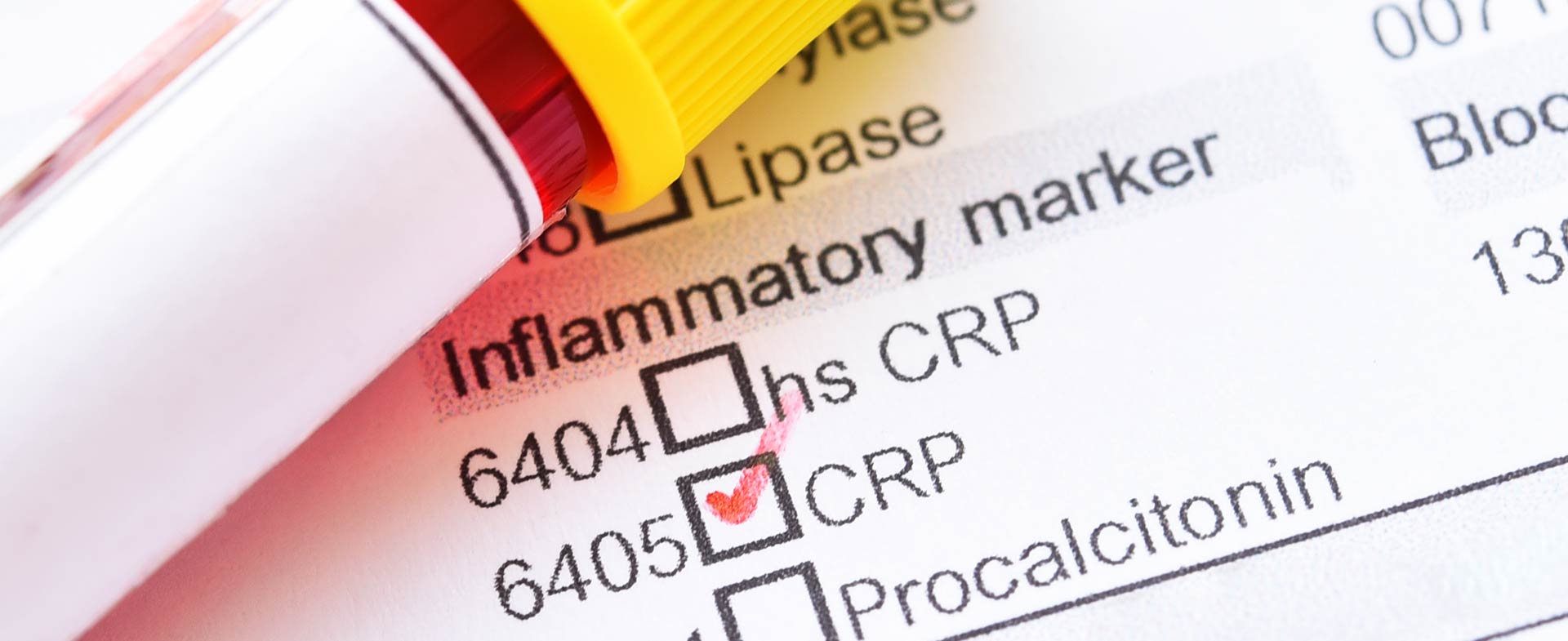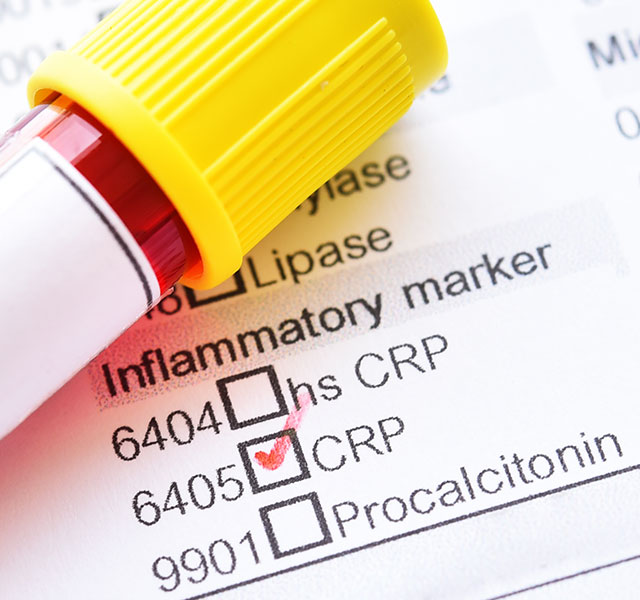C-reactive proteins (CRP) are proteins produced in your liver that increase when there is acute inflammation or infection in the body. Physicians can test these levels to have a better understanding of how inflammation impacts you.
According to Karthikeyan Ananth, M.D., a cardiologist at Henry Ford Health, a high-sensitivity c-reactive protein (hs-CRP) test is a more sensitive assessment that measures smaller fluctuations in CRP. These results can provide clues to chronic inflammatory processes (such as heart disease or autoimmune diseases) that can put stress on your body’s vascular system over time.
“hs-CRP testing allows us to measure a patient’s CRP levels within what is considered the normal range,” says Dr. Ananth. “We look at very small changes in these levels to identify low grade inflammation and its link to your cardiovascular risk so we can provide recommendations for disease prevention.”
How Cardiologists Measure hs-CRP Levels
Since vascular inflammation and long-term cardiovascular risk are associated with elevated hs-CRP, cardiologists have found that by tracking the smaller changes with this test, they are able to better understand a patient’s individual risk for cardiovascular disease.
The benefit of measuring these levels was highlighted in the JUPITER trail, a trial that explored the use of statin medication to reduce cholesterol levels in patients at risk for cardiovascular disease. It found that in patients with relatively normal levels of low-density lipoproteins (LDLs, or “bad” cholesterol) who had elevated hs-CRP, taking a statin not only reduced their chances of long-term heart events, but it also lowered their hs-CRP levels.
Testing hs-CRP Levels
Normal CRP levels are measured by milligrams per deciliter (mg/dL). When levels reach around 20-30 mg/dL, this indicates significant inflammation in the body – likely due to active infection or inflammation. With hs-CRP testing, cardiologists are looking at your CRP levels within a range of less than 1-3 mg/dL. Based on your levels they can score your risk for heart disease:

Find A Cardiologist
- Less than 1 is considered low risk
- 1-3 is considered moderate risk
- Greater than 3 is considered high risk
Other factors such as your age, sex and cholesterol levels may be taken into consideration when testing hs-CRP levels. Typically, this testing is done in patients ages 50-60 who have an intermediate risk for heart disease based on traditional assessment methods (like blood pressure, cholesterol and stress level monitoring).
“When someone has moderate cholesterol levels but minor inflammation, measuring these levels can help us determine if statin therapy would be beneficial,” says Dr. Ananth. “Starting on a statin therapy regimen has been shown to help lower hs-CRP levels, reducing your risk for heart disease.”
While hs-CRP levels are easy to measure through an outpatient blood test, this testing can only be accurate if a patient doesn’t already have elevated levels of CRP. Patients may not qualify for testing if they already have other ongoing inflammatory conditions or an active infection.
hs-CRP And Your Risk For Cardiovascular Disease
CRP is just one marker for your heart disease risk - meaning it is possible to still get heart disease despite predictions made based on your hs-CRP levels.
“Managing your risk for heart disease and lowering your hs-CRP levels can be done primarily through lifestyle changes including exercising regularly, eating a heart healthy diet, avoiding too much inflammatory or high sugar foods, getting restful sleep, controlling diabetes, quit smoking and alcohol uses and discussing with your provider if statins can help reduce your long-term heart disease risk based on your risk profile and cholesterol numbers,” says Dr. Ananth. “Understanding that what you eat, how active you are and how you control your heart risk can impact inflammation in the body helps put perspective for you to take action.”
Reviewed by Dr. Karthikeyan Ananth, a cardiologist who specializes in general cardiology, valve disease, cardiac risk assessment and adult congenial heart disease. He sees patients at Henry Ford West Bloomfield Hospital.



